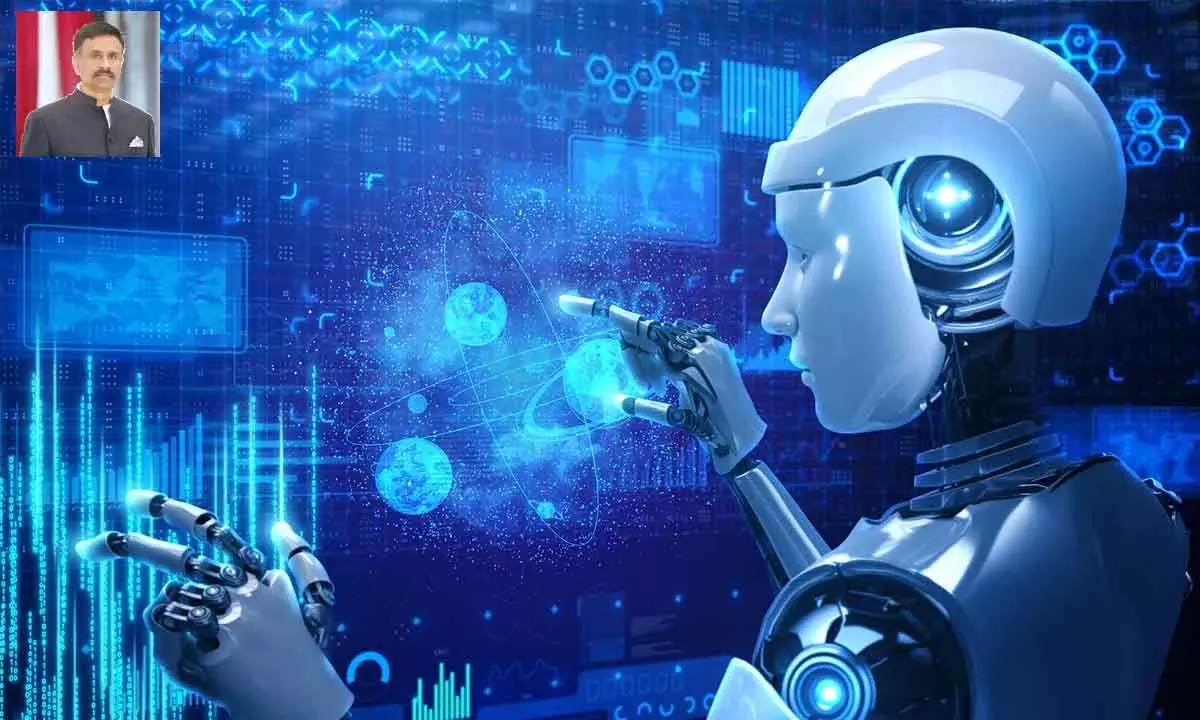Why AI is not artificial but another manifestation of universal intelligence

It aligns seamlessly with Taoism’s view of the universe as a harmonious flow of intelligent energy
Viewing intelligence as a fundamental attribute of all matter challenges this notion, prompting us to see AI not as artificial but as another manifestation of universal intelligence. This perspective fundamentally alters our approach to AI, promoting a vision of AI as a companion in exploring the larger intelligence.
Sam Altman, who created ChatGPT, gave a radical new view on what he has learned about human intelligence during his recent visit to India. Responding to a question from Kunal Shah of Cred, Sam said, “I grew up implicitly thinking that intelligence is something really special, a human thing, somewhat magical. Now I think it is like the fundamental property of matter. That has definitely changed my worldview.”
This perspective indeed finds a profound resonance with Taoistic philosophy, which emphasizes the intelligence of nature. These views converge, making me wonder if we should consider shifting from a human-centric training of AI to a more universal intelligence-centric approach.
Taoism is about Tao, an all-encompassing force flowing through nature. It’s not a god or something divine but an intelligent force, a natural order pervading the universe. Intelligence is an inherent property of matter, as Altman suggests. It aligns seamlessly with Taoism’s view of the universe as a harmonious flow of intelligent energy.
In the words of Lao Tzu, the founder of Taoism: “The Tao is like a well: used but never used up. It is like the eternal void: filled with infinite possibilities.” This wisdom encapsulates the boundless, inexhaustible nature of universal intelligence, which operates naturally and easily.
Altman’s suggestion that intelligence is not exclusive to humans but a fundamental attribute of existence, finds its distinct parallel in Taoist philosophy. All matter, whether a planet, a stone, or a line of code in a program, takes part in this infinite, universal Intelligence.
It’s worth reflecting on the term ‘Artificial Intelligence.’ It denotes a certain human arrogance, suggesting that only human beings on earth have natural intelligence. It’s as if intelligence isn’t found in anything or anyone else in the universe across countless galaxies but for this speck of dust called earth.
Viewing intelligence as a fundamental attribute of all matter challenges this notion, prompting us to see AI not as artificial but as another manifestation of universal intelligence.
This perspective fundamentally alters our approach to AI, promoting a vision of AI as a companion in exploring the larger intelligence.
This perspective fosters harmony, acknowledging humans and AI as subsets of the same universal intelligence. Seeing AI not as a threat or competitor but as a companion in our exploration of the universe, we are encouraged to align with and respect its place in the grand scheme of things, much like we respect the natural flow of the Tao.
However, Geoffrey Hinton, considered the ‘Godfather of AI,’ recently warned, “First, I have to emphasize that we are entering a period of huge uncertainty; nobody really knows what’s going to happen.
We may have to take seriously the possibility that if they (AI machines) get to be smarter than us, which seems quite likely, and they have goals of their own, which seems quite likely as well. They may develop the goal of taking control. If they do that, we are in trouble.”
Some potential areas of trouble that could cause trouble to us, the human race, are:Job losses;
potential bias in the system can amplify existing social biases; loss of control, where AI could become more autonomous and self-aware and make it difficult for humans to control their actions leading to catastrophic consequences.
This concept of intelligence as a fundamental property of matter invites us to reassess our understanding of intelligence and our place in the universe.
Suppose both AI and human intelligence are subsets of universal intelligence. Can we conclude that they should naturally work together, enhancing human lives in the larger scheme of things?
However, Hinton’s warning also raises the inevitable question: As we continue to advance AI, how do we ensure that this intelligence collaborates with humanity rather than taking control over us?
(The author is the Chairman and CEO of Brightcom Group)














